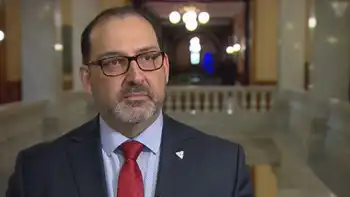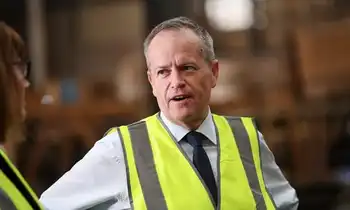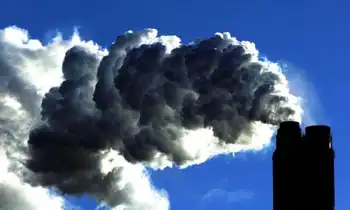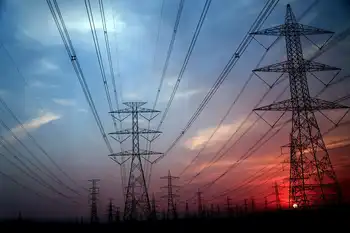Coal plant may hurl Utah into climate fight
By Salt Lake Tribune
NFPA 70e Training - Arc Flash
Our customized live online or in‑person group training can be delivered to your staff at your location.

- Live Online
- 6 hours Instructor-led
- Group Training Available
The U.S. Environmental Protection Agency recently approved a permit to add a new unit to the Bonanza electric plant on Ute tribal land in Uintah County, and the permit contained no curbs on carbon dioxide, the main pollutant blamed for climate change.
The move stunned some environmentalists, who thought EPA got the OK to limit carbon dioxide from a U.S. Supreme Court ruling last winter.
The Bonanza plant permit is the first decision of its type for the EPA since that court ruling. And it was a blow to many people who hoped the Bush administration might signal that it is no longer refusing to regulate carbon dioxide and other greenhouse gasses.
"It's an affront to all the work so many good people" have done to address climate change, said Tim Wagner, clean-energy coordinator for the Utah Chapter of the Sierra Club. "The EPA is snubbing all of the efforts - not only in Utah but all the other efforts - to get a handle on greenhouse gasses."
Climate change has become an important issue for many Utahns and others around the world who fear what it might mean for people and the environment. In Utah, the prospect of deeper and longer droughts, more water shortages and wildfires - all have generated local awareness about the global environmental problem.
Earlier, Gov. Jon Huntsman Jr.'s Blue Ribbon Advisory Committee on climate change submitted its priority list for cutting the combustion-engine emissions behind global warming. And the state of Utah and five others, led by California, signed a regional agreement to cut greenhouse gases 15 percent by 2020 - a move deemed necessary because of inaction in Washington.
Under the regional goal, the state must cut about 10.5 million metric tons of carbon dioxide from its emissions. If Bonanza is built, the state would have to find an additional 1.8 million metric tons to eliminate.
While the state normally handles air permits for plants within its borders, the Bonanza plant comes under federal jurisdiction because it is on tribal land. Representatives of the EPA in the Denver regional office and the North Carolina air policy office were not available to comment on the Bonanza permit.
Nor was the South Jordan-based Deseret Power, an electric cooperative that involves six power agencies in Utah, Wyoming and Nevada.
But the argument for leaving out carbon dioxide controls is contained in the EPA documents. In short, the federal agency cites two main reasons: It needs more time to make regulations on carbon dioxide and it has no business regulating a global pollutant in what is basically a local pollution permit.
"At this time," says EPA, "we believe that any action EPA might consider taking with respect to regulation of CO2 or other (greenhouse gases in air permits) or other contexts should be addressed through notice and rulemaking, allowing for a process which is public and transparent and based on the best available science."
The state of Utah has been watching the decision. The way EPA handles this case, said Division of Air Quality Director Cheryl Heying, offers states guidance on handling the same question, a question about carbon dioxide that comes up any time the state is asked to review an air pollution application.
"We were waiting to see what they would do and how they would explain what they are doing," said Heying.
In effect, the EPA set a precedent on regulating greenhouse gases. And Heying predicts the Bonanza ruling will trigger a whole new round of legal wrangling between the Bush administration and advocates of climate change action.
"Both sides are going to weigh in pretty heavily," she predicted.
Frank O'Donnell, director of the Washington, D.C.-based advocacy group, Clean Air Watch, agreed that the Bonanza permit will have a widespread impact.
"It is disappointing but not surprising the Bush administration had to be dragged all the way to the Supreme Court to acknowledge that carbon dioxide causes climate change, and they're continuing to stall putting any limits on it," said O'Donnell.
"It's a precedent, the precedent being that at least for the time being, EPA is not going to touch carbon dioxide from power plants unless it's forced to," he added. "It will obviously make it considerably harder to meet that (greenhouse gas reduction) goal."











